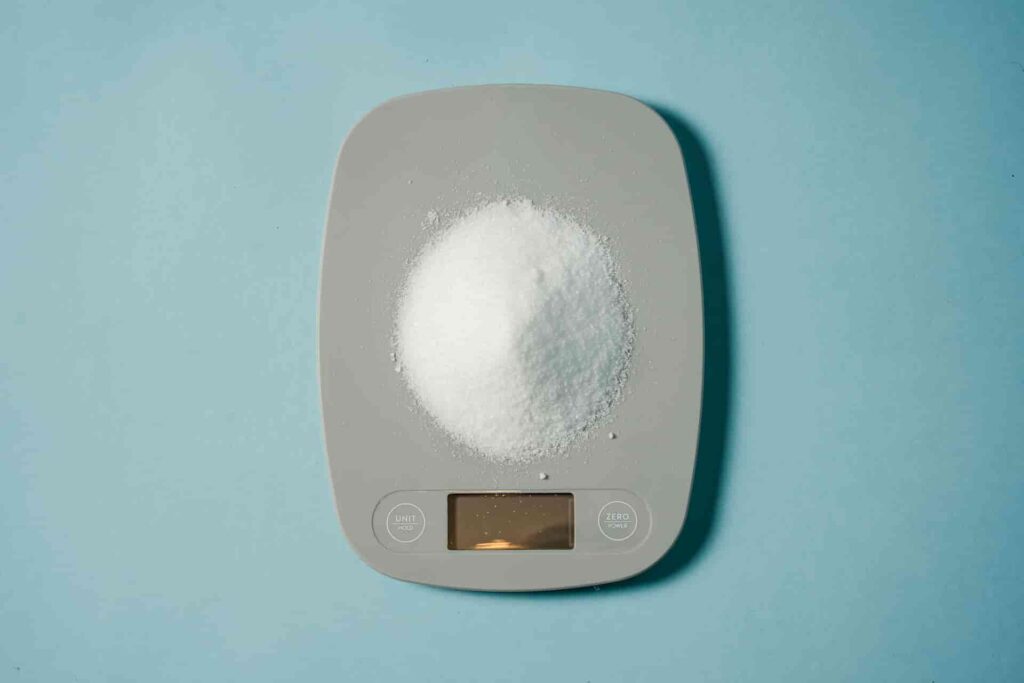Table of Contents
Table of Contents
Table of Contents
How many grams of sugar should you eat a day in 2025 ?

The consumption of sugar is one of the most debated topics in modern health and nutrition. Many wonder, «How many grams of sugar should you eat a day?» This question is pivotal for individuals aiming to maintain optimal health, avoid lifestyle diseases, or even improve physical fitness. In this article, we’ll delve deep into the science behind sugar intake, its effects on the human body, and practical tips to strike a balance in your diet.
Understanding Sugar and Its Forms

Sugar exists in two primary forms: natural sugars and added sugars. Natural sugars are found in whole foods like fruits, vegetables, and dairy. These sugars come with essential nutrients and fibers, making them a healthier choice. Added sugars, on the other hand, are introduced during the processing of foods and beverages. These sugars, often found in snacks, sodas, and baked goods, offer little to no nutritional value and contribute to empty calories.
To answer the pressing question—how many grams of sugar should you eat a day—it’s important to differentiate between these two types of sugars. While natural sugars can be part of a healthy diet, added sugars should be consumed sparingly.
Recommended Sugar Intake Guidelines

Health organizations like the American Heart Association (AHA) and the World Health Organization (WHO) provide clear guidelines on sugar consumption.
- For Women: The AHA recommends no more than 100 calories from added sugar per day, equivalent to 25 grams or 6 teaspoons.
- For Men: Men should limit their intake to 150 calories from added sugar, which translates to 37.5 grams or about 9 teaspoons.
- For Children: Depending on age and activity level, children should consume no more than 25 grams of added sugar per day.
The WHO also suggests that reducing sugar intake to less than 5% of total daily calories can provide additional health benefits, equating to roughly 25 grams or 6 teaspoons for an average adult.
How Excessive Sugar Affects the Body

Although sugar is a quick source of energy, consuming too much can lead to various health problems. Understanding the risks can help you determine how many grams of sugar you should eat a day to stay within a healthy range.
- Weight Gain: Excess sugar contributes to increased calorie intake, which can lead to fat storage and weight gain.
- Type 2 Diabetes: Regular consumption of high-sugar foods can cause insulin resistance, a precursor to type 2 diabetes.
- Heart Disease: Studies show a strong link between high sugar intake and cardiovascular problems, such as high blood pressure and elevated cholesterol levels.
- Fatty Liver Disease: Fructose, a type of sugar found in processed foods, can lead to fat buildup in the liver over time.
- Tooth Decay: Sugary foods and drinks feed bacteria in the mouth, leading to cavities and other dental issues.
By keeping your sugar intake within recommended limits, you can mitigate these risks and improve your overall health.
How Many Grams of Sugar Should You Eat a Day for Weight Management?

For those focused on weight management, it’s crucial to monitor sugar intake closely. High-sugar diets are often linked to increased appetite, as sugar can disrupt hormones that regulate hunger and fullness. Reducing sugar can help stabilize these hormones, making it easier to maintain a healthy weight.
Balancing Sugar in an Active Lifestyle

If you lead an active lifestyle, you might wonder if you need more sugar to fuel your energy needs. While athletes and physically active individuals may require slightly more carbohydrates for energy, this doesn’t mean consuming large amounts of added sugar. Instead, focus on complex carbohydrates like whole grains, legumes, and fruits, which provide sustained energy.
Even in the context of fitness, it’s important to ask, how many grams of sugar should you eat a day? The answer lies in maintaining balance—ensuring you get enough natural sugars while avoiding unnecessary added sugars.
Hidden Sources of Sugar

Many people unknowingly consume excessive sugar because it’s hidden in everyday foods. Processed and packaged products often contain added sugars under various names, such as:
- High-fructose corn syrup
- Cane sugar
- Agave nectar
- Molasses
- Dextrose
- Maltose
Reading labels is essential to understanding how much sugar you’re consuming. For example, a single serving of flavored yogurt or a granola bar can contain more sugar than you might expect.
How to Calculate Your Daily Sugar Intake

To determine how many grams of sugar you should eat a day, start by analyzing your diet. Use the following steps:
- Track Your Intake: Record everything you eat and drink for a day, paying special attention to added sugars.
- Read Nutrition Labels: Check the “total sugars” and “added sugars” sections on packaging.
- Adjust Portion Sizes: Reduce portions of high-sugar foods to stay within recommended limits.
By tracking and analyzing your intake, you can ensure your sugar consumption aligns with health guidelines.
The Role of Sugar in a Healthy Diet

Sugar is not inherently bad; it serves as a quick energy source and can enhance the flavor of foods. However, the key is moderation. By focusing on whole, unprocessed foods, you can enjoy natural sugars while minimizing the risks associated with added sugars.
Practical Tips to Reduce Sugar Intake

If you’re aiming to reduce sugar in your diet, these practical tips can help:
- Choose Unsweetened Beverages: Replace sugary drinks like soda and juice with water, herbal tea, or sparkling water.
- Cook at Home: Preparing meals at home allows you to control the ingredients and avoid hidden sugars.
- Snack Smart: Opt for nuts, seeds, or fresh fruit instead of sugary snacks.
- Limit Desserts: Enjoy desserts occasionally and in small portions.
- Experiment with Spices: Use spices like cinnamon or vanilla to add flavor without sugar.
The Bottom Line
To answer the question, how many grams of sugar should you eat a day, the general guideline is to limit added sugars to 25–50 grams per day, depending on your age, gender, and activity level. Focusing on whole, nutrient-dense foods and reducing processed foods will not only help you meet this target but also support your overall health and well-being.


